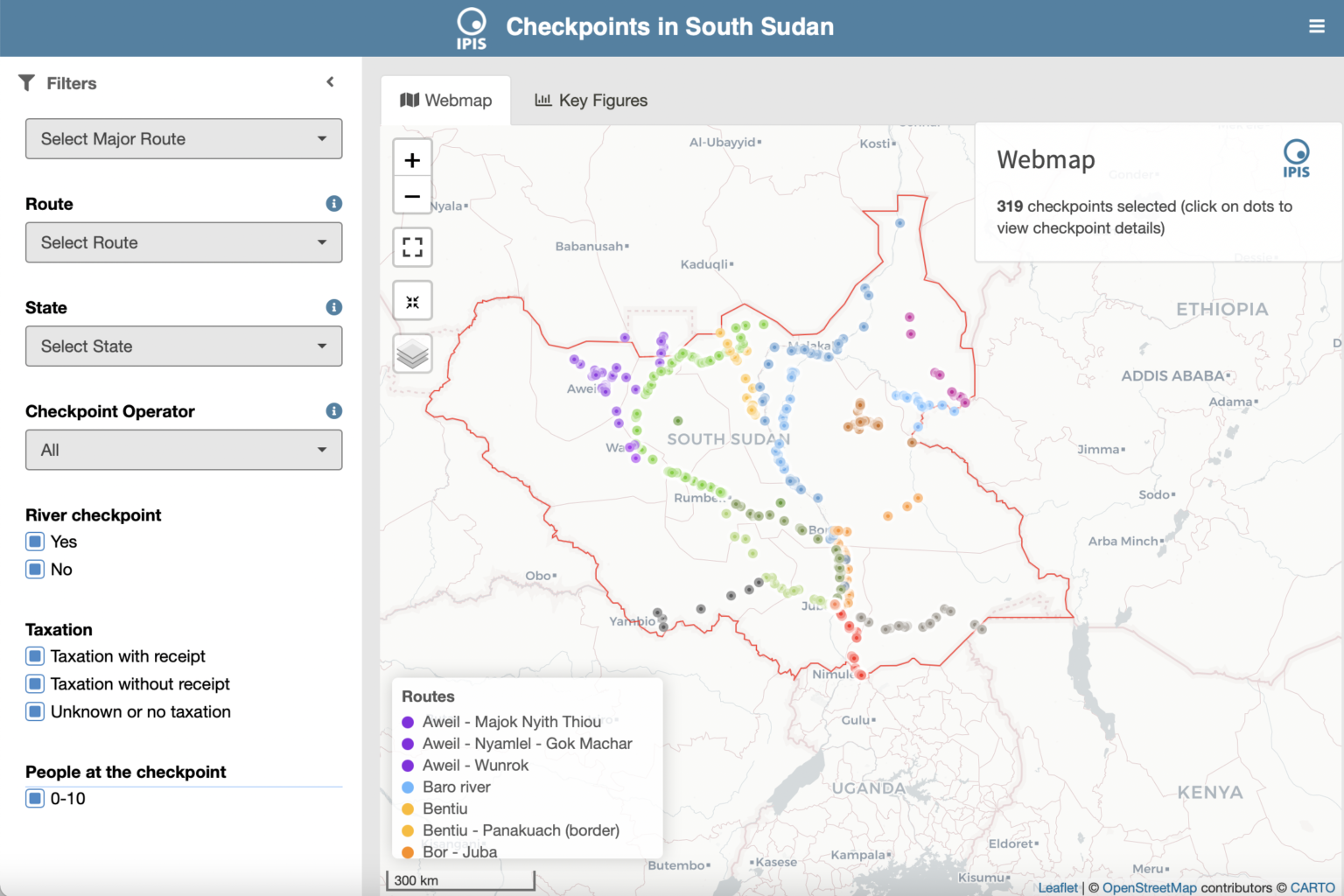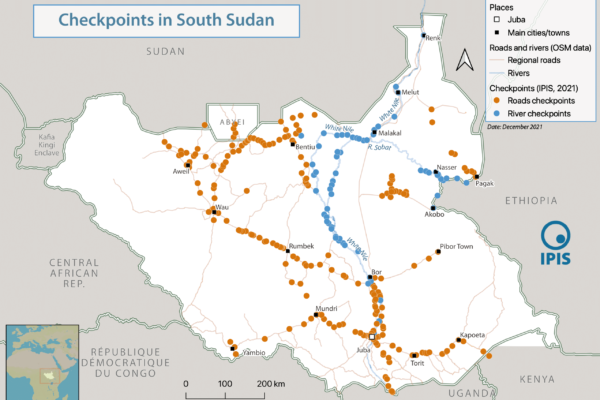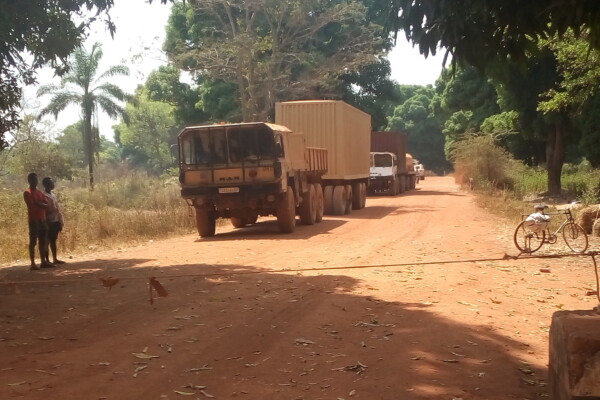Roadblocks are a structural feature of South Sudanese roads. Whereas roadblocks in principle have legitimate roles to fulfil — ensuring security and levying decentralized taxes — they can also become vehicles for insecurity and illegal taxation.
Along South Sudanese roads and rivers, state agents, security forces as well as armed groups occupy checkpoints at which they levy illegal taxes and hamper movement. Checkpoints are a major constraint to trade, economic development, and humanitarian access in South Sudan.
IPIS and Danish Institute for International Studies (DIIS) will implement a research project to develop a detailed understanding of the exact scope of the phenomenon of checkpoints in South Sudan. What are its main drivers and impacts?
Without evidence-based answers to these basic questions, we cannot gauge the broader developmental impact of roadblocks in South Sudan’s political economy. Recent evidence from neighboring countries – including DR Congo and CAR – suggests that roadblocks can be a key source of funding for conflict actors. Yet absent regular salary, roadblocks can also be crucial for stability by providing (illicit) pay for armed forces. And while one roadblock is not necessarily a problem, collectively, roadblocks can strangle economic activity and threaten livelihoods by disincentivizing trade and even agricultural surplus production.
IPIS will deploy a specifically developed methodology which combines in-field geospatial and survey- based data collection with qualitative context analysis. Primary data on individual road- and river checkpoints will be collected in collaboration with a range of experienced South Sudanese researchers. Results will be published through an interactive webmap of checkpoints in South Sudan, and an accompanying analytical report.
- Dates: April 2019 - May 2021
- Location(s): South Sudan
- Research Programme(s): Conflict Mapping
- Funder(s): World Food Program
- Partner(s): Danish Institute for International Studies (DIIS)
- Activities: Field Research
- Deliverable(s): Report, Interactive webmap
Project Coordinator

Webmap

Explore our interactive checkpoint map of South Sudan.
It provides some primary data that we collected per checkpoint, including the operators, taxation levels, and waiting times, and offers many filter functions.



